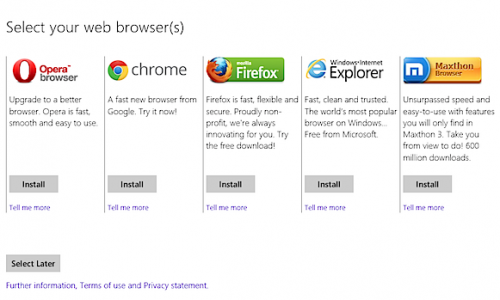EU investigation of Microsoft over browser choice moves forward: Report

Bloomberg is reporting European Union antitrust regulators are moving ahead with their investigation of Microsoft's failure to fulfill its obligation to provide users with Web-browser choice.

Bloomberg cited in a September 18 report "two people familiar with the matter" claiming that the EU is preparing a formal complaint.
If true, the news isn't surprising given the European Commission acknowledged back in July 2012 that it had received complaints that Microsoft wasn't providing users with broswer choice. At that point, the EU opened an probe into Microsoft's behavior.
Microsoft admitted quickly it had failed to offer the browser ballot screen since February 2011. The Redmondians cited a a "technical error" led to the browser ballot update not being included in the store-shelf version of Windows 7 with Service Pack 1. The result? Microsoft "missed serving the [browser ballot] software to the roughly 28 million PCs running Windows 7 SP1," company officials conceded.
Microsoft offered to make immediate amends, and developed a software fix that would distribute the browser choice screen to PCs running Windows 7 Service Pack 1. The company also hired "experienced outside counsel" to figure out how the omission occured and to prevent it from happening in the future. Microsoft also voluntarily offered to extend the time during which it is obliged to offer the browser-choice screen by 15 additional months.
"We understand that the Commission may decide to impose other sanctions," officials noted in their July statement.
Microsoft is offering no further comment beyond that July statement, a spokesperson told me on September 18.
Microsoft began delivering an update to Windows 8 users to enable the "browser ballot" screen earlier this month, even though the operating system's general availability date is a month away.
In 2009, Microsoft was found by European antitrust authorities to have abused its dominant operating-system market position by bundling Internet Explorer with the desktop software. Microsoft settled the case with Europe, and agreed to provide Windows users there with a browser choice screen, as of February 2010.